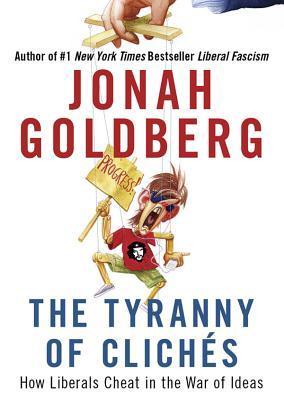More on this book
Kindle Notes & Highlights
Read between
November 23 - December 18, 2021
Pragmatism is the disguise progressive and other ideologues don when they want to demonize competing ideologies.
Our life expectancy is just three years and four months lower than number one–ranked Japan’s. Moreover, if you factor out things like murder, car crashes and other fatal accidents, etc.—problems that have little to nothing to do with our health-care system—guess what happens? America has the highest life expectancy in the world.
Among Napoleon’s less appreciated accomplishments is our modern understanding of the word “ideology.” Napoleon’s success at turning the word into a term of abuse in certain respects spells the end of the Enlightenment and the dawn of the Pragmatic Age.
Napoleon saw ideology as a threat to his power and used ideologue as an epithet, as a way to claim that those who held principles independent from the demands of power were in fact independent from reality. And, when convenient, Napoleon’s indictment described most religious and philosophical thought as ideology.
One of James’s greatest contributions to progressivism was the idea of the “moral equivalent of war.” This has had real cash value for liberals over the last one hundred years. “Martial virtues,” James wrote, “must be the enduring cement” of American society: “intrepidity, contempt of softness, surrender of private interest, obedience to command must still remain the rock upon which states are built.” What James wanted was a way to figure out how to have war without war, to mobilize and galvanize people to drop their petty concerns and interests as if they were threatened by an outside foe. In
...more
Taken on its own terms, pragmatism’s folly is that it separates intelligence from wisdom. Its greatest sins are arrogance and deceit, including self-deceit. It is arrogant because it assumes the individual—particularly the expert—can know everything he needs to know without reference to received wisdom, historical precedent, tradition, dogma, etc. The pragmatists particularly loathed history, because it was a storehouse of old thinking with no relevance for the new age of science, slide rules, and data. Tricked by what they saw out their windows, they assumed that human nature had an
...more
When America elects a left-wing president, the tendency for conservatives is to like the government less and the country more. This is because liberal presidents tend to want to change America while conservative presidents tend to talk about the need to change the government. And when America elects conservative presidents, the Left tends to express its love for government more (and lament how it is being discredited by conservatives) and its fondness for America less.
Marx’s obsession with defining everyone as homo economicus caused him to ignore many of the most important facts of life. It is a lesson that not only Marxist economists would do well to learn: To look upon the interactions of the priest and the confessor, mother and child, doctor and patient, soldiers and their comrades, musicians and their audiences as exclusively, or even primarily, economic transactions is to cram the square pegs of your ideology into the round holes of reality.
Marx’s great rival in academic debates about class was Max Weber, who defined class not so much in terms of income, but social authority. Weber’s vastly superior analysis held that a given society’s organization of classes was contingent on a specific culture, and that income had far less to do with the rankings than the Marxists thought.13 Priests in seventeenth-century France, for example, may not have been particularly wealthy, but they were certainly more influential than the comparatively prosperous blacksmith guild. Lady Gaga is not influential because she’s rich, she’s rich because
...more
“The fear that liberalism would be thanked for its service and given a gold watch became more acute as the American economy soared after World War II,” notes William Voegeli. He continues: In 1957, the year before John Kenneth Galbraith published The Affluent Society, Arthur Schlesinger tried to redefine liberalism’s mission for such a society. He wrote that the New Deal’s establishment of the welfare state and Keynesian management of the economy heralded the completion of the work of “quantitative liberalism.” Its logical and necessary successor should be “qualitative liberalism,” which would
...more
The hurly-burly of America’s cultural politics, while important, even vital, can never unravel the implicit social contract of capitalism which says that if you follow the virtues Adam Smith laid out, you will do just fine. If you teach those values to your kids, they will do better than you. That is true of whites, blacks, Hispanics, gays, and everybody else Maya Angelou listed in her no doubt brilliant poem. That in a nutshell is the American dream. There are no guarantees, but odds are in your favor.
This is great, but I think the Jonah of 2021 might concede where that of 2011 may not: the generational durability of disparities in wealth and decline of social mobility are worthy of more proactive public policy. If only relative prominence of social unrest now vs then.


